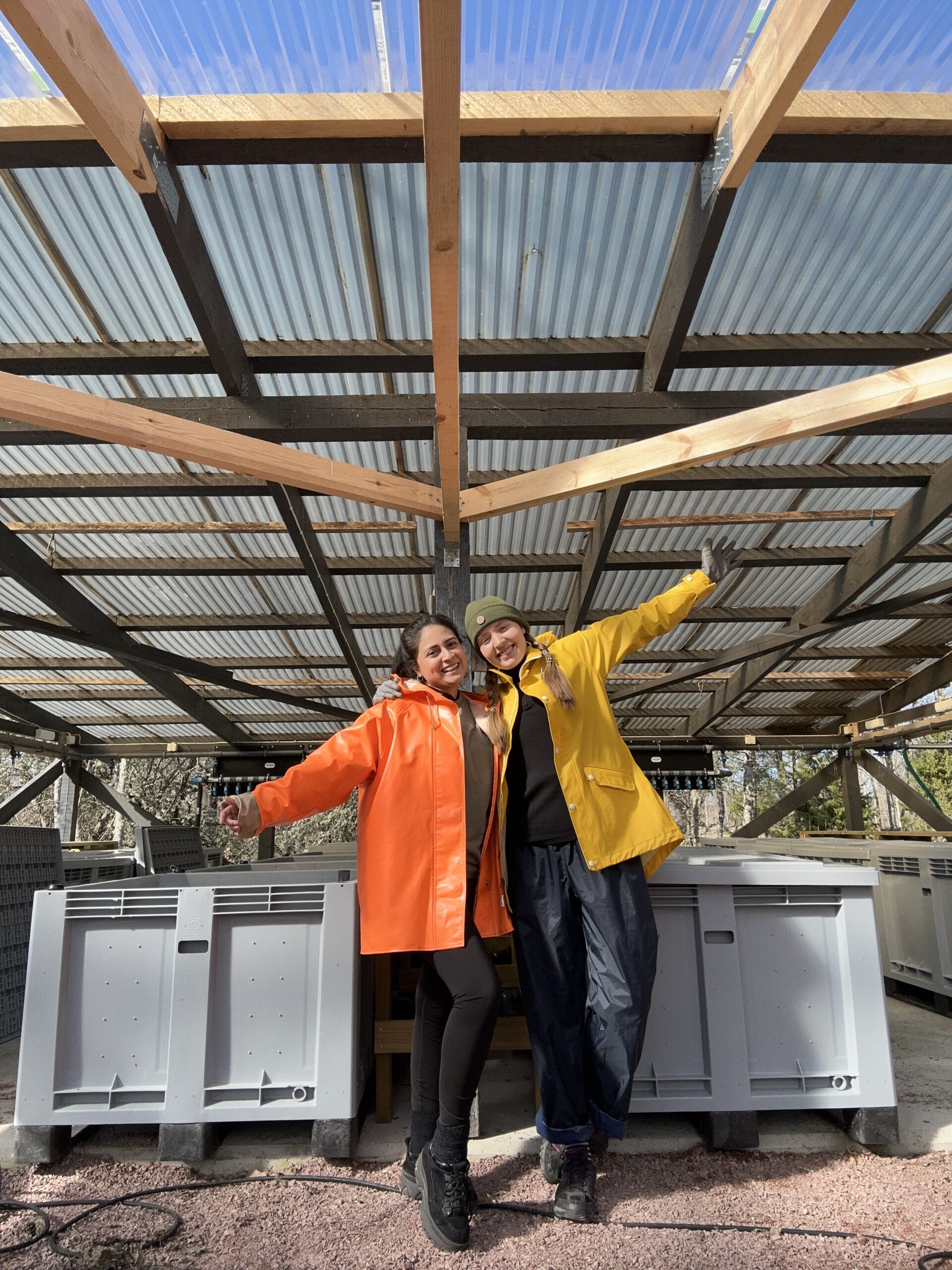This 2024 GAME project on light pollution tests its influence on the growth and the attractiveness of macroalgae to grazers simultaneously and worldwide.
This year’s GAME Tam is Kristin Wikström (from Åbo Akademi University, Finland)
& Stephany Saveedra Diaz (from Kiel University, Germany)
GAME 2024 at Husö Biologiska Station: Exploring the Impact of Artificial Light At Night (ALAN) on Fucus vesiculosus and its interaction with the grazer Idotea balthica
This year, as part of the Global Approach by Modular Experiments (GAME) project, we are investigating the impact of artificial light at night (ALAN) on macroalgae, focusing on Fucus vesiculosus (bladderwrack) and its interaction with Idotea balthica, the primary grazer of F.vesiculosus. Through the GAME program, our research is part of a global initiative, with similar experiments being conducted worldwide, including our site at Husö in Finland.
 Our team at Husö includes Kristin Wikström from Åbo Akademi University, Finland, and Stephany Saveedra Diaz from Kiel University, Germany. Now in the middle of August, we are entering the concluding weeks of our third and final experiment on ALAN’s effects. In the experiments, we use three different light conditions as treatments: no ALAN, white ALAN, and yellow ALAN. In the ALAN treatments, we are exposing the algae to 30 lux of light at the water surface to replicate real-life nighttime light scenarios in areas with exposure to artificial light.
Our team at Husö includes Kristin Wikström from Åbo Akademi University, Finland, and Stephany Saveedra Diaz from Kiel University, Germany. Now in the middle of August, we are entering the concluding weeks of our third and final experiment on ALAN’s effects. In the experiments, we use three different light conditions as treatments: no ALAN, white ALAN, and yellow ALAN. In the ALAN treatments, we are exposing the algae to 30 lux of light at the water surface to replicate real-life nighttime light scenarios in areas with exposure to artificial light.
We are also investigating whether the combined effect of grazing by I. balthica and ALAN exposure has a greater impact on the algae than either factor alone. To test this, our experimental setup includes both grazed and non-grazed conditions within each light treatment. To identify potential effects, we measure several response variables, including respiration rate, photosynthetic rate, tissue toughness, color, and growth rate. Additionally, we test the treatment’s effect on defense responses in F. vesiculosus through single-choice feeding assays conducted at the end of the experiments.
Our experiments are conducted in Husö’s outdoor mesocosms, although the set up resembles an aquarium experiment to ensure consistency with other GAME teams globally. This year’s project builds on previous GAME research, providing valuable insights into the impacts of ALAN. For more information on previous GAME projects on ALAN, please refer to that year’s research descriptions, GAME 2023 especially provides insight into the general background of ALAN research.
The GAME program provides the chance to work with a diverse, international team, collaborating with people from various professional and personal backgrounds. This project not only gives us experience in conducting experimental research but also challenges us to become problem-solvers, project managers, and part-time inventors, builders, and electricians, as well as science communicators. Through our project, we hope to provide insights into the effects of light pollution on marine ecosystems, contributing to informed conservation strategies and a deeper understanding of environmental stressors on marine life in the Baltic Sea
 Hola! I am Stephany from Peru, and I am a master’s degree student in Environmental Management at Kiel University. My work experience has primarily focused on addressing air, water, and soil pollution. However, when I found out about the GAME 2024 research topic on artificial light pollution, I was immediately excited to conduct research on this pioneering subject, aiming to explore potential mitigation strategies and management approaches to reduce the possible negative effects of light pollution.
Hola! I am Stephany from Peru, and I am a master’s degree student in Environmental Management at Kiel University. My work experience has primarily focused on addressing air, water, and soil pollution. However, when I found out about the GAME 2024 research topic on artificial light pollution, I was immediately excited to conduct research on this pioneering subject, aiming to explore potential mitigation strategies and management approaches to reduce the possible negative effects of light pollution.
 Hi, I’m Kristin Wikström, and I’m studying Environmental and Marine Biology at Åbo Akademi University. Growing up in the Finnish archipelago, it was impossible not to develop a love and interest for the sea. During my bachelor’s program, I was able to explore this further, combining it with a minor in Computer Science and a thesis on the UN Ocean Decade. Now, in my master’s studies, I’m excited to be part of the GAME program, focusing on experimental ecology for my master’s thesis. I’m hoping we can create some useful knowledge for local conservation and restoration efforts as well as gain insights on a more global scale.
Hi, I’m Kristin Wikström, and I’m studying Environmental and Marine Biology at Åbo Akademi University. Growing up in the Finnish archipelago, it was impossible not to develop a love and interest for the sea. During my bachelor’s program, I was able to explore this further, combining it with a minor in Computer Science and a thesis on the UN Ocean Decade. Now, in my master’s studies, I’m excited to be part of the GAME program, focusing on experimental ecology for my master’s thesis. I’m hoping we can create some useful knowledge for local conservation and restoration efforts as well as gain insights on a more global scale.
